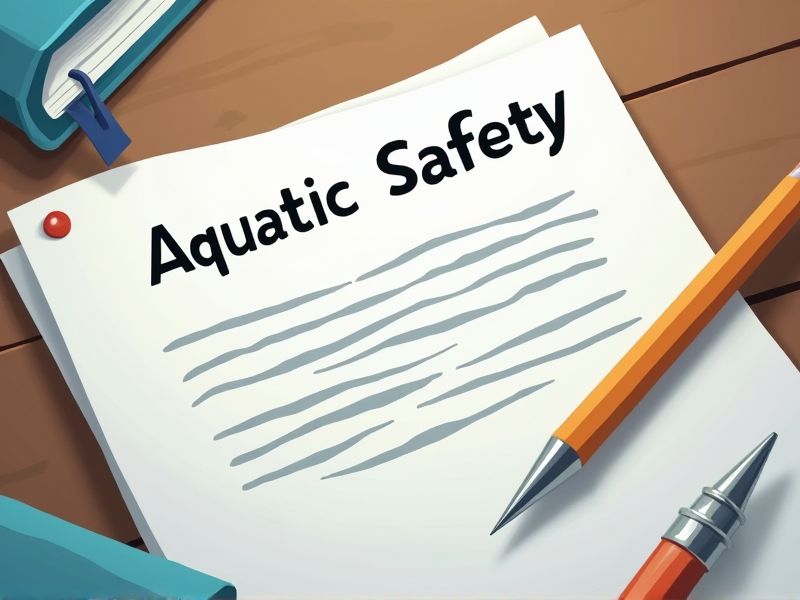
An Aquatic Safety Director is responsible for ensuring the safety and well-being of individuals using aquatic facilities. Holding specific certifications provides the necessary skills and knowledge to manage risks and emergency situations effectively. These certifications also ensure compliance with industry standards and regulations. Here are some important certifications required for an Aquatic Safety Director.
American Red Cross Lifeguard Training Certification
The American Red Cross Lifeguard Training Certification equips an Aquatic Safety Director with essential life-saving skills and knowledge, directly enhancing the safety of aquatic facilities. Certification ensures the director meets standardized criteria, which can reduce the risk of liability issues for the facility. By covering CPR, AED, and first aid, the training emphasizes comprehensive emergency response, crucial for managing aquatic emergencies. Credentialing also fosters community trust and credibility, signaling a commitment to high safety standards.
CPR/AED Certification
Aquatic Safety Directors oversee environments where the risk of drowning and cardiac emergencies is high, necessitating CPR/AED certification to ensure rapid response to such incidents. Timely administration of CPR and AED can markedly increase survival rates in cardiac arrest scenarios, underscoring the need for proficiency in these techniques. Certification ensures that directors are equipped with up-to-date skills and knowledge, aligning with industry standards for safety. Their expertise also enables them to train and lead their teams effectively, fostering a safer environment for all aquatic facility users.
First Aid Certification
First Aid Certification provides an Aquatic Safety Director with essential skills to respond to emergencies, potentially reducing injury severity. Knowledge from the certification enables quick identification and treatment of common water-related injuries, enhancing overall safety. Certification signals a commitment to safety standards, which can bolster public trust in the facility's management. Training ensures compliance with legal and insurance requirements, helping to avoid potential liabilities.
Aquatic Facility Operator (AFO) Certification
The Aquatic Facility Operator (AFO) Certification equips an Aquatic Safety Director with the necessary knowledge to manage pool operations efficiently, thereby reducing the risk of accidents. Proper understanding of water chemistry and filtration systems, gained through AFO Certification, ensures the aquatic environment is safe for all users. The certification also provides guidelines for routine inspections and emergency protocols, enhancing overall safety measures. This qualification is often required by regulatory bodies to standardize safety practices and ensure compliance with state and local regulations.
Water Safety Instructor (WSI) Certification
The WSI Certification equips Aquatic Safety Directors with essential skills in water rescue techniques, contributing to a safer swimming environment. Certification ensures that the director possesses a comprehensive understanding of drowning prevention strategies, reducing the likelihood of incidents. WSI training includes effective teaching methodologies, enabling directors to impart crucial water safety knowledge to staff and patrons. Recognized certification enhances the credibility and trustworthiness of the safety director among colleagues and the public.
Aquatic Facility Management Certification
Achieving an Aquatic Facility Management Certification equips an Aquatic Safety Director with crucial knowledge of pool operations, ensuring safer and more efficient facility management. Certification validates the director's understanding of water chemistry, which directly impacts the health and safety of swimmers. It enhances skills in risk management and emergency response, which are essential in reducing accidents and liability issues. Having this certification boosts the credibility and trustworthiness of the director in the eyes of staff, patrons, and stakeholders.
National Incident Management System (NIMS) Certification
Obtaining NIMS Certification for an Aquatic Safety Director enhances crisis response coordination in aquatic environments, ensuring all personnel are aligned with national emergency protocols. This certification equips the director with the necessary tools to effectively manage potential incidents, minimizing response times and improving outcomes. By understanding national standards, the director can better integrate aquatic safety protocols with broader emergency services. Enhanced preparedness through NIMS Certification ultimately contributes to a higher standard of safety and efficiency in managing aquatic facilities.
Emergency Action Planning (EAP) Certification
Emergency Action Planning (EAP) Certification equips an Aquatic Safety Director with the necessary skills to effectively manage potential hazards in aquatic environments. This certification ensures that the director can coordinate and lead emergency response efforts, minimizing risks to patrons and staff. Proper EAP training enhances the director's ability to devise and implement strategies for quick and efficient emergency responses. Having certification in EAP also instills confidence in the safety protocols followed by the aquatic facility, promoting a safe environment.
NFPA 101: Life Safety Code Certification
NFPA 101: Life Safety Code Certification ensures an Aquatic Safety Director understands essential safety protocols, minimizing risks to patrons and staff. Compliance with NFPA 101 signifies an alignment with industry standards, which aids in legal protection and liability reduction. Knowledge from the certification helps improve emergency response tactics in aquatic settings, which is crucial for preventing accidents and fatalities. As facilities strive for operational excellence, having a certified professional can enhance reputation and trust among the community.
Hazardous Materials Awareness Training Certification
Aquatic Safety Directors often work in environments where hazardous materials such as pool chemicals are present, so proper awareness training is crucial to preventing accidents and ensuring safety. Mismanagement of these chemicals can cause serious health risks, including respiratory issues or skin damage, necessitating the need for specialized training. The certification equips directors with knowledge to identify, react, and respond to hazardous material spills or leaks, reducing potential harm to both personnel and facility users. Regulatory compliance often requires such certifications to ensure legal responsibilities are met, providing an operational safeguard.
Summary
When you ensure an Aquatic Safety Director gains relevant certifications, you enhance their expertise and competence in safety protocols. This likely leads to improved safety standards at aquatic facilities. You'll notice a reduction in accidents and enhanced emergency response effectiveness. Professional development may also increase the director's credibility and boost your facility's reputation.
